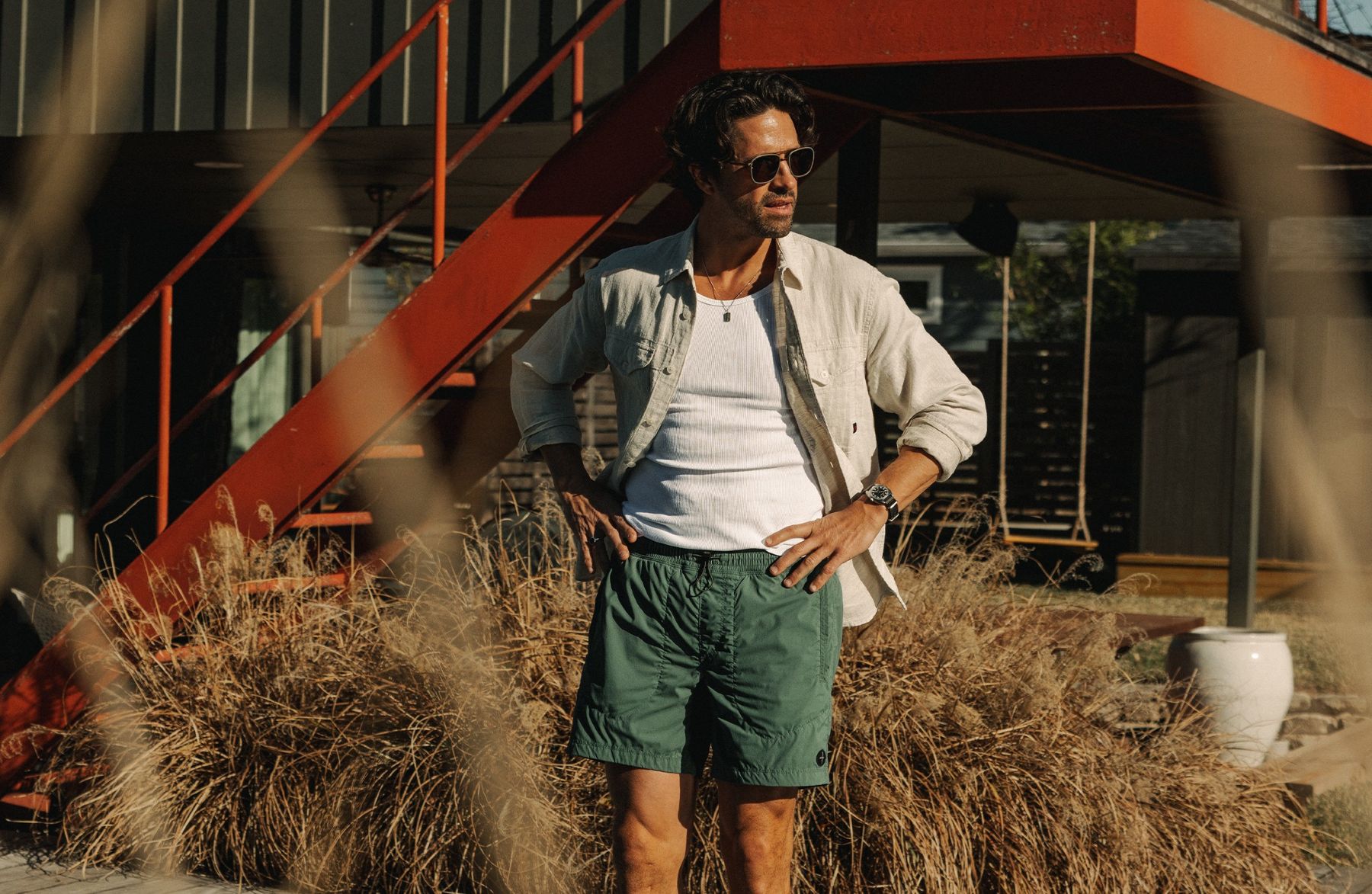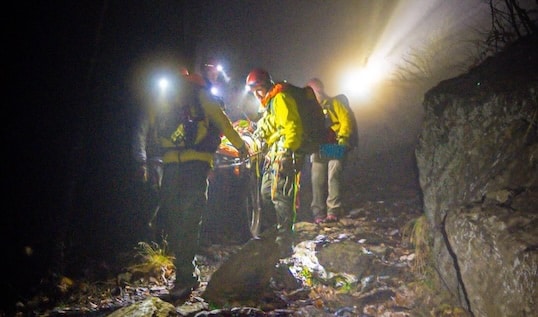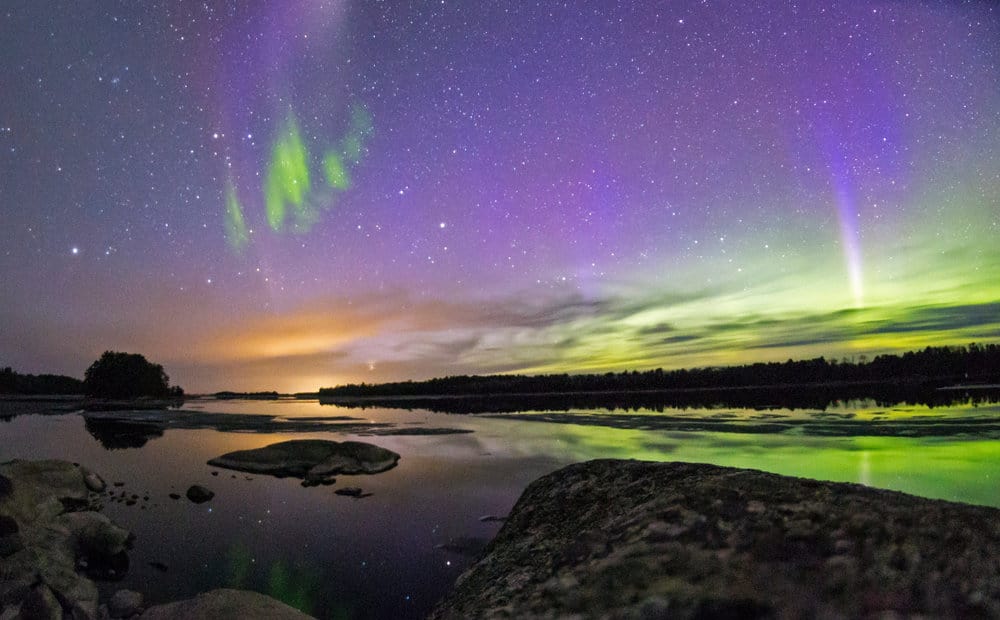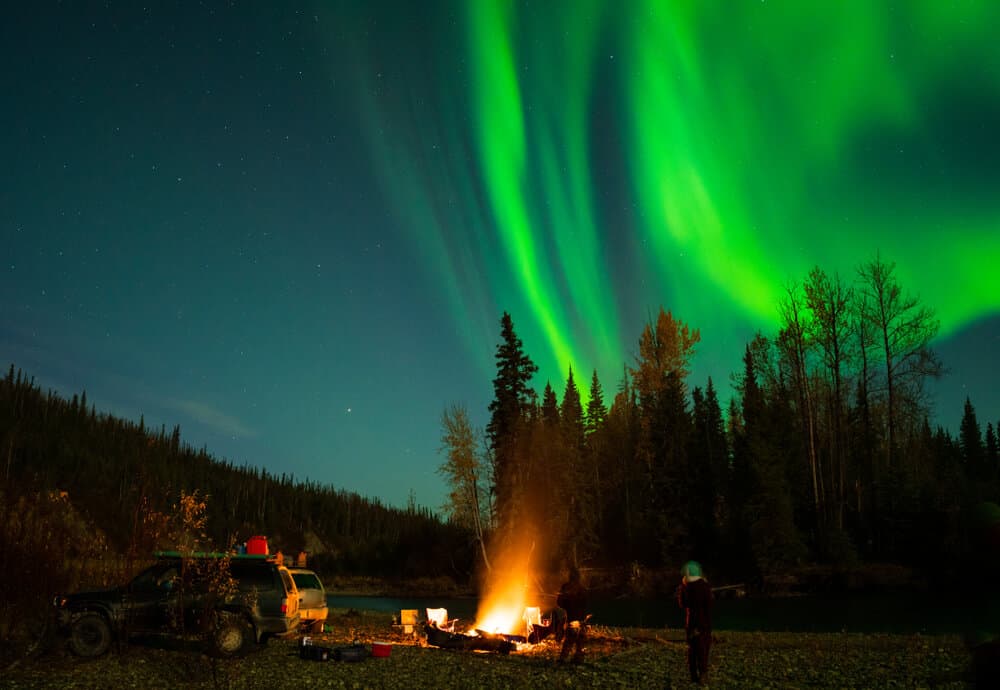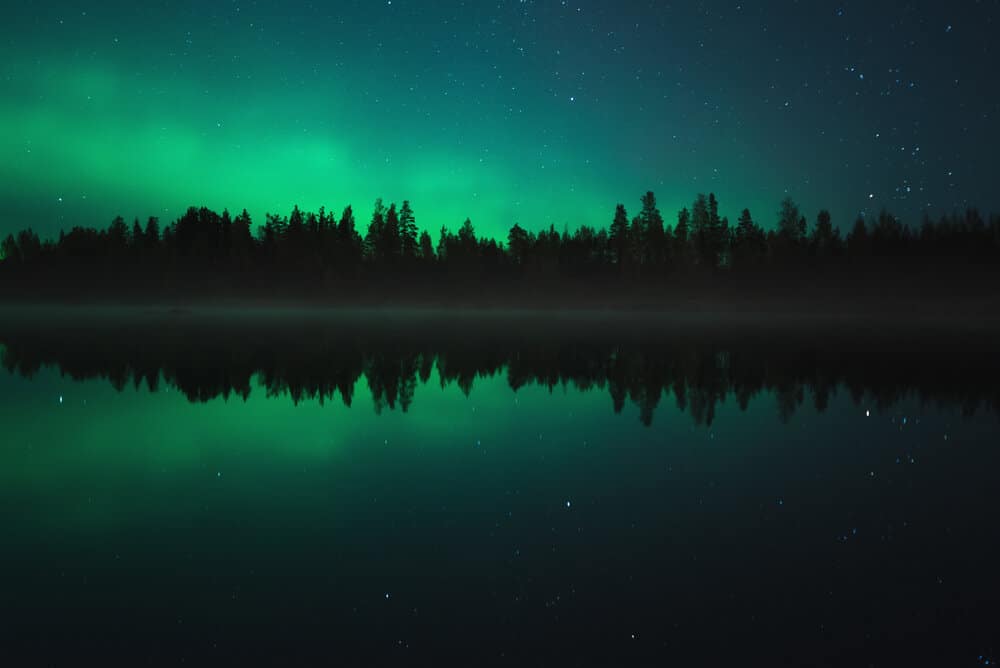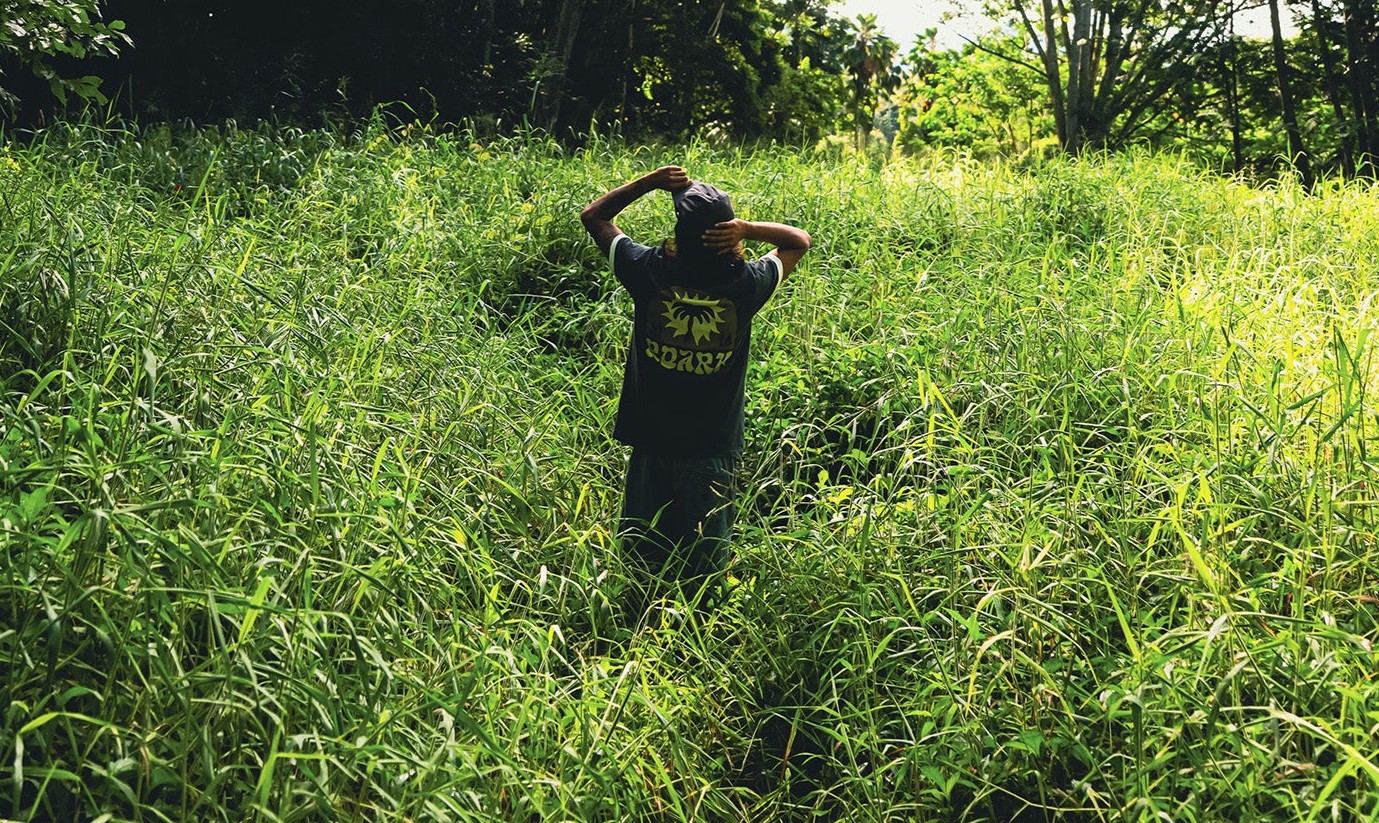All The Best New Menswear Pieces from the Relwen Spring/Summer 26 Drop
Mar 3, 202610 Best Places to See Northern Lights in the USA (2023)
- Aug 9, 2023
- 0 Comments
1275
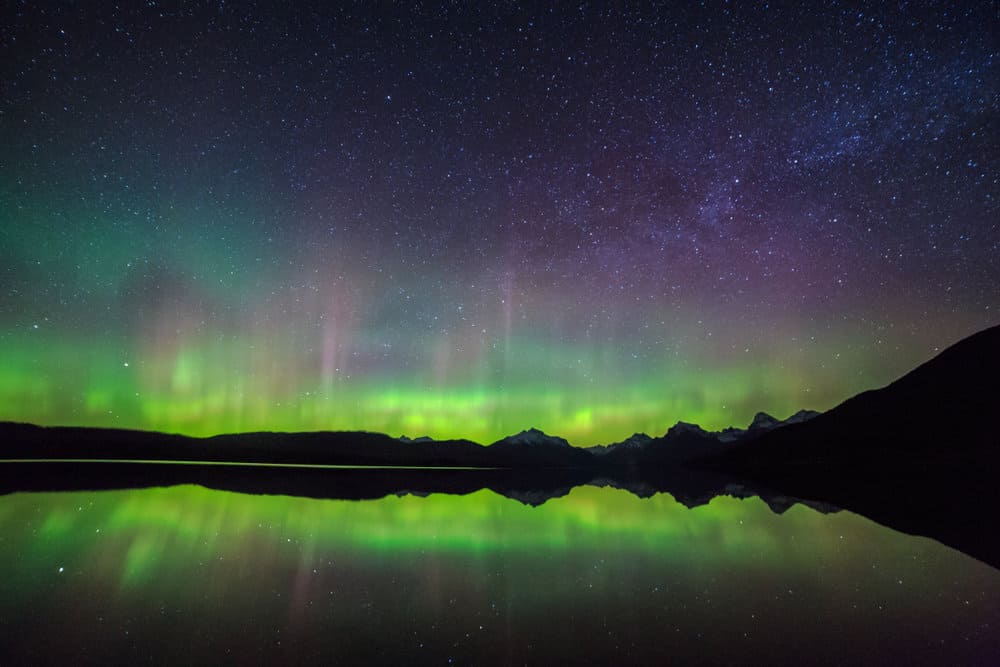
This post may contain affiliate links. Read our disclosure page for full details.
Are you looking for the best places to see Northern Lights in the USA?
The Northern Lights, also known as the Aurora Borealis, are a fascinating natural phenomenon that can be seen in certain regions of the United States.
Living in Alaska for seven incredible years, I was able to witness the northern lights many times, and each encounter was truly wonderful!
Planning a trip to view the Northern Lights isn’t just an opportunity to capture some phenomenal photographs, but it’s also a romantic idea that many couples are adding to their bucket list!
In this post, I’ll guide you through the top destinations in the USA to witness the Northern Lights, from the enchanting landscapes of Alaska to serene spots in the lower 48 states.
The allure of viewing the Aurora Borealis in some of the most stunning landscapes will be well worth it. It’s a sensory spectacle that tickles the heart of every traveler, adventurer, and hopeless romantic alike.
Best Places to See Northern Lights in the USA
The Northern Lights occur due to geomagnetic activity, which happens when particles from the sun interact with the Earth’s magnetic field, causing the sky to light up in a kaleidoscope of colors.
Below are the most incredible spots across the USA where you can catch the Northern Lights in action.
From the wilderness of the Arctic to rural locations in the northern states, these locations promise an unforgettable front-row seat to nature’s dazzling light show.
- Fairbanks, Alaska
Fairbanks, Alaska, is one of the very best places to witness the Northern Lights, and I can say that from personal experience! Having lived there, I had many opportunities to see the Aurora Borealis, mainly in the depth of winter when the landscape transforms into a magical frozen wonderland!
Fairbanks is considered an ideal location for viewing the Northern Lights due to its position under the “Auroral Oval,” a ring-shaped zone over the far north where auroral activity is concentrated.
You can potentially see the lights from locations in and around Fairbanks, including downtown and Creamer’s Field. However, city lights may decrease the vibrancy of the spectacle, so darker, more remote locations are often recommended.
Murphy Dome, where I lived, is one of the highest points near Fairbanks and provides a 360-degree view of the sky. It’s about a 40-minute drive from downtown Fairbanks.
A popular place outside of town for Northern Lights viewing is the Chena Hot Springs Resort. It is a less crowded, immersive experience and is 60 miles northeast of Fairbanks. Here, you can enjoy a warm soak while witnessing the ethereal glow of the Northern Lights!
Another notable location is the Aurora Borealis Lodge and Chalets, located just 20 miles north of Fairbanks in the famed Cleary Summit area.
If you’re planning a trip and want to enhance your chances of seeing this natural phenomenon, there are Northern Lights tours in Fairbanks that can guide you to the best viewing spots. These tours are led by seasoned locals who can provide a unique and personal experience for you!
- Denali National Park, Alaska
Denali National Park is another remarkable destination in Alaska to witness the Northern Lights. The light pollution is minimal, and the Northern Lights are often vivid and active.
In winter, the Denali Park Road is open to private vehicles up to Mile 3, the Savage River checkpoint. Past this point, the road is closed to all traffic due to snow and severe weather conditions.
Riley Creek Campground, located near the park entrance, is open year-round, however. In winter (roughly mid-September to mid-May), camping is free, but you must register to camp.
It’s important to note that services are extremely limited in the winter months! The campground has vault toilets and a water spigot at the mercantile but no other utilities, i.e., electricity, water, or sewer hookups.
For viewing the Northern Lights, the dark, clear skies of the Riley Creek Campground can provide an opportunity, but sightings are never guaranteed as they depend on solar activity and weather conditions.
Before your visit, check the latest updates on the official park website or contact the park authorities to ensure you have the most accurate information.
If you want a more pampered experience consider a stay at Talkeetna Alaska Lodge which is only 45 minutes south from Denali National Park and enjoy the northern lights from their viewing deck!
Read Next: Best Places for Romantic Couple Stargazing in the USA
- Glacier National Park, Montana
Glacier National Park in Montana may not be as far north as Alaska, but it still offers some great opportunities to witness the Northern Lights.
Known for its beautiful mountains, pristine forests, and over 700 lakes, the park’s natural beauty creates an impressive setting for the Aurora Borealis.
One of the best spots to see the Northern Lights in the park is at Lake McDonald near the West Glacier entrance. The lake is generally calm, providing a beautiful reflection of the lights on clear nights.
Other notable spots include Bowman and Kintla Lakes, which are further north in the park and offer darker skies for viewing. Polebridge, a small town outside of the northern boundary of the park, is also a good spot if you prefer not to trek as far into the park.
You can enjoy a cozy Aurora viewing at Polebridge’s Northern Lights Saloon & Cafe, complete with live music and homemade huckleberry pie.
The Northern Lights can be observed at any time of the year in Glacier National Park. However, they tend to be more visible during the longer, darker nights of late fall, winter, and early spring. The spring season, in particular, is a prime time for viewing.
If you’re in the lower 48 states and hoping to catch a glimpse of this magical phenomenon, Glacier National Park is certainly a place to consider.
- Lake Superior, Michigan
Lake Superior, the largest of North America’s Great Lakes, serves as a stunning backdrop for viewing the Northern Lights in Michigan! Its expansive, serene waters create a mirror-like surface, amplifying the ethereal beauty of the Aurora Borealis.
Benefiting from a lack of significant urban development around key sections of the lake, the light pollution is minimal, optimizing the conditions to witness the lights.
Aurora chasers often gravitate towards the secluded beaches of Michigan’s Upper Peninsula, where the Northern Lights frequently paint the horizon with their vibrant hues.
Photographers, both amateur and professional, have identified Lake Superior as a choice location for capturing the mesmerizing interplay between the Northern Lights and the calm waters of the lake. Their testimonials and stunning images attest to the lake’s prime positioning for this natural light show.
Should your travels bring you to Michigan, or if you’re fortunate enough to reside in the area, consider heading on a nocturnal journey to Lake Superior.
For those seeking a unique stargazing opportunity, the nearby Headlands International Dark Sky Park provides an enjoyable and educational alternative, presenting the chance to observe celestial phenomena in a minimal light pollution environment.
- North Cascades National Park, Washington
North Cascades National Park, nestled in Washington State, provides a challenging yet rewarding opportunity to observe the mesmerizing Northern Lights. There is no fee to enter North Cascades National Park!
While the frequency of this phenomenon is less predictable compared to other northern locations, the experience can be truly special. The beauty of the park truly serves as a striking environment for enjoying the Aurora Borealis.
Diablo Lake, known for its distinctive turquoise waters, is positioned just west of Ross Lake Overlook and is celebrated as a prime vantage point. The glacial lake’s reflective surface enhances the visual experience by mirroring the vibrant hues of the aurora.
That said, auroral displays in this region can be unpredictable, requiring patience and persistence from prospective viewers. The sighting of the Northern Lights is not guaranteed and is influenced by various factors such as solar activity and weather conditions.
The park has excellent campgrounds and backcountry camping opportunities available. Just be sure to get s permit for the backcountry. Otherwise, accommodations can be found in nearby towns. The River’s Edge Resort in Winthrop is great because you can enjoy a soak in a hot tub after your outdoor adventure.
- Voyageurs National Park, Minnesota
Voyageurs National Park in Minnesota, nestled close to the Canadian border, is a favored destination for Northern Lights enthusiasts due to its ideal geographical position that enables frequent Aurora Borealis sightings.
The park’s distinctive terrain, with over 40% covered by water bodies, significantly enhances the viewing experience of this celestial spectacle.
The Ash River Visitor Center area, located along the southern shores of Kabetogama Lake, is particularly recommended for its expansive, reflective views of the sky.
Additionally, the Ellsworth Rock Gardens on Kabetogama Lake and the Rainy Lake Visitor Center are also excellent viewing spots, providing wide, unobstructed views of the night sky.
During winter months, when the skies are typically clearer and darker, adventurous visitors can venture onto the frozen lakes for an unhindered view of the Northern Lights painting the sky above.
The park also is an exceptional location for winter camping which ups your viewing opportunities! But if you prefer a comfy accommodation check out the nearby Cantilever Hotel in International Falls.
A visit to Voyageurs National Park not only immerses you in the rugged charm of Minnesota’s wilderness but also offers the potential for an enchanting encounter with the display of the Northern Lights.
- Wrangell-St. Elias National Park, Alaska
Wrangell-St. Elias National Park, Alaska, holds a special place in my heart as the location where I first witnessed the Northern Lights.
It was September in the small town of McCarthy, Alaska, nestled in the heart of the park when I saw the sky come alive with vibrant colors while enjoying a bonfire with friends. I honestly will never forget that night! I was blown away!
The park, being the largest in the United States, offers vast and unspoiled wilderness with glaciers and towering mountains that create an absolutely fantastic backdrop for the Aurora Borealis. Its super remote location ensures dark skies, making the lights vividly visible.
If you find yourself in Alaska during the Northern Lights season, making the drive to McCarthy within Wrangell-St. Elias can lead to a potentially life-changing experience. I may be biased but it is one of my favorite places!
The incredible pristine beauty of the park, coupled with the enchanting display of lights, is something that will make an imprint on your mind for a lifetime.
- Isle Royale National Park, Michigan
Isle Royale National Park in Michigan is a unique setting to observe the Northern Lights. The park’s natural wilderness and the surrounding water provide a serene and almost mystical ambiance for the lights.
Located on an isolated island within Lake Superior, the park is far from the light pollution of urban areas, making it quite a noteworthy spot for those in search of the Aurora Borealis!
While getting to Isle Royale requires a bit more planning, as it’s accessible only by boat or seaplane, the journey is well worth the effort. It’s worth noting that it is closed to the public from November 1 until April 15.
There are lodges on the island to stay at or it is an exceptionally beautiful place to plan a backpacking or camping trip. You can paddle to a different campground each night!
Once on the island, visitors can explore the island by day and, with luck, experience the Northern Lights by night. Isle Royale’s isolation and beauty create a truly special environment for witnessing the aurora, offering a memorable adventure for those who make the trek.
- Moosehead Lake, Maine
Moosehead Lake in Maine, with its expansive, dark skies, provides a truly spectacular setting for viewing the Northern Lights on the east coast of the US, especially during the long nights between December and February.
Visiting Moosehead Lake is a must if you live on the east coast! It’s like stepping into a tranquil oasis, where the pristine wilderness, abundant wildlife, and breathtaking views combine to create a truly immersive adventure!
The wide-open vista over the water enhances the experience as the lights may reflect off the lake. For the best viewing experience, plan your visit Aurora-chase trip between October and April and select a spot on the lake with an unobstructed view of the northern horizon.
Lily Bay State Park, located on the east shore of Moosehead Lake, is a popular site. It provides camping facilities, allowing you to stay overnight and maximize your viewing opportunities. It is open for camping in the winter as well!
While Acadia National Park in Maine gets most of the attention for a prime destination on the east coast, checking out Moosehead Lake will not be a disappointment!
- Gates of the Arctic National Park, Alaska
Gates of the Arctic National Park in Alaska is positioned above the Arctic Circle, making it an excellent spot for viewing the Aurora Borealis! The untouched wilderness and genuinely dark skies add to the allure of this extraordinary remote destination.
The journey to this region requires a long drive on the Dalton Highway, a rugged and scenic route that’s an adventure in itself. In the winter, temperatures can plunge well below zero, adding both challenge and excitement to the surreal experience.
I’ve had the adventure of braving this journey, driving the road, hiking, camping, and experiencing firsthand the raw beauty of the land. It’s so remote, it’s shocking. You won’t ever forget the landscape!
If a guided experience is more appealing, Arctic Circle tours from Fairbanks offer organized excursions, providing an accessible option for those seeking the Northern Lights.
The combination of the park’s unspoiled landscapes with the possibility of witnessing this celestial spectacle creates an experience that’s both thrilling and deeply connected to the wonders of nature.
Top Tips for Viewing the Northern Lights in the USA
- Choose the Right Location: Opt for places with low light pollution, usually away from city lights. Northern states like Alaska, Michigan, and Maine are popular choices.
- Check the Forecast: Monitor both the weather and aurora forecasts. Clear, dark skies are essential for a good viewing experience.
- Time Your Visit: Aim for late fall to early spring when nights are longer and darker.
- Stay Up Late: The Northern Lights are typically most visible between 10 PM and 2 AM.
- Be Patient: Northern Lights displays can be unpredictable. It may take several hours of waiting in the middle of the night!
- Dress Warmly: It can get quite cold at night, especially in northern locations and during winter months.Be sure to bundle up and wear thermals, warm winter boots, a hat, and mittens.
- Bring the Right Gear: A comfortable chair, warm blankets, a thermos of hot drinks, and snacks can enhance the experience.
- Use a Good Camera and Tripod: To capture the best images of the Northern Lights, definitely use a tripod and adjust your camera settings to a long exposure.
- Embrace Winter Camping: The longer, clearer nights of winter offer optimal Northern Lights viewing. Ensure you’re prepared to camp in the winter with appropriate gear, a cold-rated sleeping bag, a winterized tent, and knowledge for cold-weather safety.
FAQS: Best Places to See Northern Lights in the USA
Here are some commonly asked questions about the Northern Light and some helpful answers.
Where is the best place to see the northern lights in the US?
Fairbanks, Alaska is definitely the best place in the U.S. to view the Northern Lights! The city’s cold, clear nights from late September to early April provide excellent viewing conditions. The University of Alaska Fairbanks even has an Aurora Tracker on its website, which provides real-time data to aid your hunt.
What US states can see the northern lights?
The Northern Lights can be seen in several U.S. states, primarily those closer to the North Pole. These include Alaska, Washington, Idaho, Montana, North Dakota, Minnesota, Wisconsin, Michigan, and Maine. However, visibility depends on factors like solar activity, clear skies, and minimal light pollution.
In North Dakota, occasional sightings of the Northern Lights make Theodore Roosevelt National Park a recommended viewing spot. The Idaho Panhandle National Forests also provide a serene setting for occasional sightings of the Northern Lights!
What time of year is best to see the northern lights in America?
The best time to see the Northern Lights in America is during the colder months, from late fall to early spring. This period from September to March usually provides longer hours of darkness and clearer night skies, essential for optimal viewing. The peak months are often January to March. However, weather conditions and solar activity can greatly influence visibility.
What month is best to see northern lights in Alaska?
The best time to visit Alaska to see the Northern Lights is between late August and early April, with peak viewing season being in March. During this period, there are longer hours of darkness and clearer night skies, which are ideal for viewing the aurora borealis. However, visibility can be influenced by weather conditions and solar activity.
What city is closest to the northern lights?
Fairbanks, Alaska, is the U.S. city closest to the Northern Lights. It is located directly beneath the auroral oval, making it one of the best places in the world to view this natural phenomenon. Fairbanks offers clear skies and minimal light pollution, providing ideal conditions for witnessing the Northern Lights.
Final Thoughts: Best Places in US to View Northern Lights
It’s definitely exciting that the United States boasts a variety of prime locations to observe the captivating Northern Lights! Fairbanks, Alaska, as the premier choice, to Moosehead Lake and Aroostook County in Maine, renowned for its dark northern skies.
Remember that seeing the Northern Lights is a natural occurrence and is subject to various factors, including solar activity and weather conditions, so it’s essential to plan your trip during peak times and be patient for the best chances of witnessing this incredible spectacle.
Mother Nature doesn’t operate on a schedule, but when she puts on her show, it’s worth every minute of anticipation. The Northern Lights are like that elusive moose – they require patience, a bit of luck, and a sense of adventure. Enjoy the chase!
You Might Also Like:
About the Author:
Heather Kasvinsky is a perpetual food enthusiast and lover of the outdoors who shares her culinary and travel expertise through her blog, This Noshtalgic Life. She and her family frequently travel from their home in Vermont to an off-grid cabin in Alaska, adding a real-life dimension to her adventurous narratives.
Publisher: Source link


